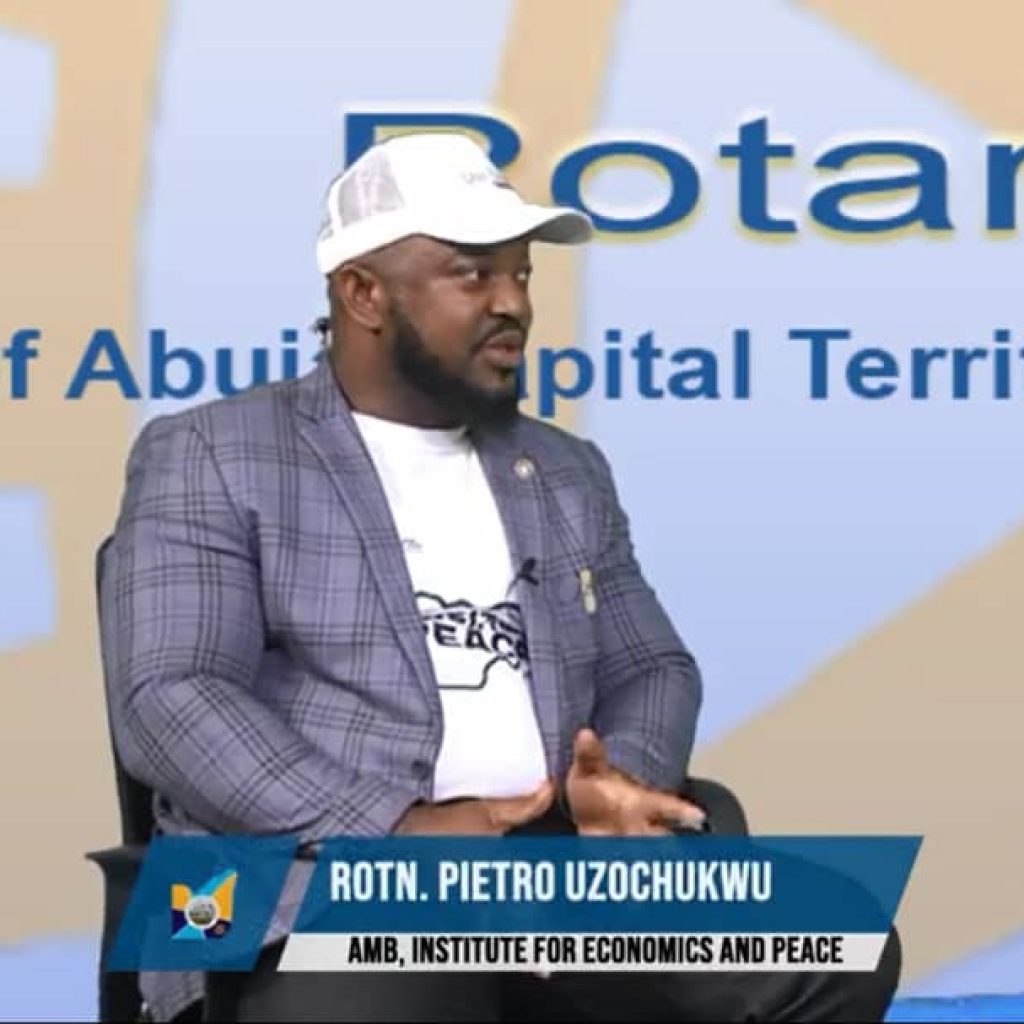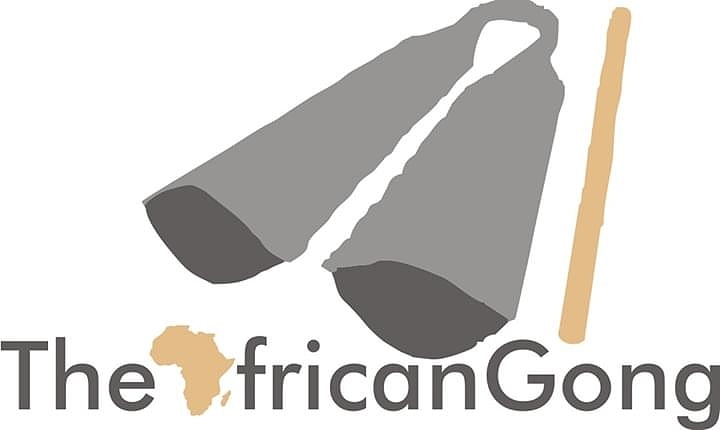In a couple of months from now, Nigeria will be celebrating its 61 years of freedom from the colonial rule. However, six decades after, the country is still embroiled in all forms of ethnic, socio- political and religious divisions, confrontations and re-occurring conflicts that is presently, posing enormous threat to its cooperate existence. In this interview with ‘THEAFRICANGONG’
the Founder, Gray Child Foundation, a Pan-African non-partisan organisation working to improve communities and human capital development of people in Nigeria and Africa, Pietro Uzochukwu Macleo throws light on the brain child of the foundation, “Activating Positive Peace Initiative in Nigeria”, a project believed to be a panacea for sustainable peace and development in Nigeria.
Excerpt:
Recently, the Gray Child Foundation unveiled a project tagged “Activating Positive Peace in Nigeria.” Can you throw more light on what the initiative is all about?
Activating Positive Peace in Nigeria is a pet project of Gray Child Foundation. Our organization is collaborating with Rotary International and Rotary Associates to drive positive peace building initiatives to the nukes and crannies of Nigeria using local Rotary structures (Rotary-Rotaract-Interact Clubs, Rotary Community Corps and Rotary Alumni Groups).
We have embarked on projects that would establish peace infrastructures in rural and urban communities, thereby re-enforcing the eight pillars of positive Peace across the 37 States of Nigeria.
The initiative is targeted at creating and implementing holistic programs that would institutionalize peace and strengthen peace infrastructures in the grassroots, rural communities, urban metropolis, public and private governance institutions. Our goal is to create a network of empowered community peace builders across Nigeria, who would have the capacity to act as an early warning and early response mechanism that would address, contain, monitor and report brewing conflicts and uprising, to consequently curb direct violence, marginalization across gender, ethno-religious, and other critical historical, socio-political dimensions of conflicts.
What informed the idea of this project?
Since the independence of the Federal Republic of Nigeria in October 1960, the country has been experiencing ethnic divisions, confrontations and re-occurring conflicts. The contest, conquest and competition for scarce resources and the politics of identity have over the years accounted for the incessant spat of conflicts in Nigeria, and most recently, the post COVID-19 economic harsh realities have further stretched the country as the government is now struggling to contend with economic decline, low price of crude oil and yet; increase in the demand of government functions and social welfare; as witnessed during the EndSARS impasse.
Also, stifled government machineries are yet another serious and ‘pandemic’ problem that makes all forms of conflict and crisis worse in Nigeria. The mismanagement of national resources makes poverty and transfer of aggression inevitable aspects of daily socio-political economic routine for the average citizen.
Poverty and injustice caused by dishonesty, weakens any sense of mutual tolerance, social solidarity or coexistence, while reawakening social hatred, radicalism and violence. For this reason, building strong institutions and re-enforcing existing ones are seen as one of the most important issues that have to be resolved in order to cope with recurring conflicts in Nigeria.
These realities points to the fact that if deliberate efforts and measures are not put in place, there may be a total collapse of the country as predicted by many, and this is why humanitarians of repute; Rotarians and Rotary Associates, having successfully eradicated polio in Nigeria; have taken peace building and conflict resolution as the next key project. Our programme is rooted in tested workable global theories, methodologies and best practices. Our activities are anchored on the “Institute for Economics and Peace” ideology of positive peace; re-enforced with the theory of change, thereby making our peacebuilding interventions to be strategic; deliberately targeting and enhancing the weak pillars of positive peace in Nigeria communities. Every of our project targets and addresses the root causes of conflict so as to prevent a re-occurrence, and attain sustainable peace and development.
What are the weak pillars of positive peace in Nigerian communities you just referred to?
The weak pillars includes lack of democratic ideals and accountable governance, lopsided distribution of resources, constrained and limited access to information, intolerance and ethnic segregation, poor level of human capital development, human right abuse and high handedness of local authorities, high level of corruption and unfriendly business environment, these weak pillars are what is responsible for violent conflict, extremism and insecurity in the country, and that is what our programmes are set out to correct.
You just alluded to the eight pillars of positive peace. Can you expatiate on this?
Thank you very much, well the eight pillars of positive peace are pillars or features that have been identified by IEP to be inherent in a community/ country which directly accounts for the level of peacefulness in that society. While the presence and functionality of these pillars accounts for peace, tranquility and development, its absence accounts for violent conflicts, crisis, insecurity, endless agitations etc. It is therefore advised that institutions that are directly responsible for the optimum functionality of these pillars should be constantly re-enforced and sustained. These eight pillars includes: Well-functioning government, equitable distribution of resources, free flow of information, good relations with neighbours, high levels of human capital, acceptance of the rights of others, low levels of corruption, sound business environment.
Tell us about the activities or programmes that will be rolled out under this initiative?
We have several outlined programmes and tailor-made projects, but like you know, peacebuilding is dynamic and progressive, so we are on constant lookout to address peace and conflict concerns as they may arise. Our list of activities includes: To build peaceful relationships among people of all ages, ethnicity, religion and culture- from personal to global through education, dialogue, advocacy, research and action. We will be providing practical tools for peaceful living including skills and methods for conflict resolution and violence prevention. Most importantly, we will be establishing peace infrastructures such as early warning sign mechanisms, construction and equipping of peace orientation and vocational training centers, establishment of peace building mechanism in correctional facilities, construction of peace monuments in capital cities of the 37 States including FCT. Among others, we will be establishing Positive Peace Clubs in rural communities, liaising and partnering with other organizations advocating for sustainable peace.
Nigeria is a country bedeviled by many challenges. From inequality, bad governance, corruption to terrorism, kidnapping, banditry and what have you. Do you see the positive peace approach as a panacea to these sundry problems?
To a very large extent, I consider this initiative a quasi-panacea to address Nigeria’s quagmires, because having identified the weak pillars of positive peace, the Activating Positive Peace in Nigeria programmes are designed to strengthen those pillars. Our initiative involves preventing or ending direct violence as well as structural and cultural violence; and goes further to correct unjust social structures and social norms to prevent the occurrence or re-occurrence of direct violence in future.
Positive Peace as a concept is about the appropriate attitudes, institutions, and structures which when strengthened, leads to a more peaceful society. Therefore our agenda for the activation of positive peace in Nigeria is geared towards strengthening, correcting and re-enforcing institutions, structures and attitudes of the Nigeria system so as to attain sustainable peace and development.
Nigeria is a country with socio-political, ethnic, religious and cultural diversity. Key stakeholders in the helms of affairs of the country tend to be divided along these lines. How can this initiative help to engender togetherness and tolerance among stakeholders to maintain peacefulness and attain national sustainable development?
Our programme has already identified and addressed your concerns, through our objectives, methods and approaches. Our objective is to take peace building initiatives to the nukes and crannies of Nigeria, embarking on projects and programs that would establish peace infrastructures in rural and urban communities, thereby re-enforcing the eight pillars of positive peace across the Country; to sensitize and empower Nigerians at all levels and enhance their ability to be peacebuilders, advocates and gatekeepers.
Our method is to use local Rotary and Rotary Associate structures; same vast network with a national acceptability and unblemished record of personnel that were able to deliver nationwide vaccination of Nigerian children against polio virus, and successfully eradicate poliomyelitis from Nigeria. This time, our goal is to eradicate conflict in Nigeria.
Our approach is designed to empower Nigerians to become more responsive, responsible and accountable citizens; to inform the people on who does what, when and how, and further unblur the line between the duties and responsibilities of government, governance and the governed.
Presently, Nigeria ranks low in the Global Peace Index. As a way forward, what do you proffer as solution to change the status quo?
For Nigeria to address issues of peace, tranquility and peaceful co-existence, it requires the government, citizens -young and old, especially youths and women to be alive to their responsibilities and ensure that Nigeria moves from being a ‘pariah’ in Global Peace Index to a safe, strong and united nation. That is the whole essence of our programme; where Nigerian citizens at all levels would be reached; sensitized, empowered, and peace infrastructures put in place to advance peaceful coexistence and tolerance. The attainment of this objective would readily translate to national peace and development.
How can Activating Peace in Nigeria Initiative enhance the attainment of the United Nations’ Sustainable Development Goal 17?
Ironically, when it comes to the concept of peace, you cannot divorce it from any sphere of human endeavour. The attainment of UN Goal 17 is wrapped around peaceful co-existence, and serenity, as nothing can be achieved in a state of chaos, anarchy and conflict. From environmental degradation to hunger, government policies to education etc; all facet of the UN goals are enmeshed in peacebuilding. Therefore the agenda for the Activation of Positive Peace in Nigeria is directly proportionate to the actualization of United Nations Sustainable Development Goal 17. Our programmes would empower Nigerians to be more responsive, responsible and accountable citizens.
You have come up with what appears to be a very noble idea. One thing is to have such a wonderful idea and another is to be able to execute the project successfully as funding is usually a challenge. How do you hope to get funding for your programmes?
Well, the constraint of funding is a constant challenge almost all projects encounter, but we have devised a potent means to cushion this difficulty. Drawing from our pool of partners, affiliates and associates we have been able to breakdown our programmes according to attainable milestones in view with available resources. So far we have executed pockets of our projects across Nigeria but we are still trying to start up our holistic approaches. So yes, funding is very much yet a challenge.
We have reached out to some government agencies, Ministries, Departments and Parastatals for partnership and infrastructure accessibility because having free government infrastructures for our campaign and programmes would go a long way to ease the burden on costs, lease and rentals.
Also, we are reaching out to peace loving Nigerians and passionate humanitarians who may be willing to donate their time, talent or treasures to the actualization of our objective for the attainment of sustainable peace and development.
Pietro Uzochukwu Macleo is from Idemili North of Anambra State, Nigeria. A Rotarian, a Political Scientist and a thought leader in peacebuilding works. He hold a Master’s Degree in International Relations. He is an Ambassador of the Institute for Economics and Peace, a Paul Harris Fellow and a Fellow of the Institute of Management Consultants. He is also a Chartered Diplomatic Manager, Chartered Conflict Manager, Professional Crisis Manager and a Certified Project Manager and a member of many local and International Institutes and Institutions.
End…


